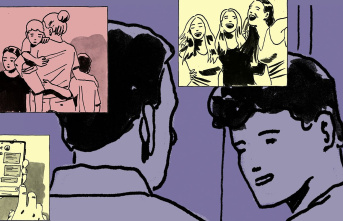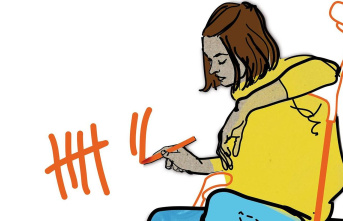The General Directorate of the Basque Health Service has sent a circular to all its workers to warn that these practices, which have led to a sentence of 60,000 euros for three nurses from an outpatient clinic in Basauri, "go against their own ethics and have consequences legal of all kinds, disciplinary, criminal and/or civil”.
The sentencing of three nurses from a Basauri outpatient clinic for spying on a colleague's medical history has shown that this is a common practice in Osakidetza. In an internal circular sent by the General Directorate to all workers, the Basque Health Service points out that improper access between professionals to this type of personal data is "numerous". However, the staff is asked to avoid consulting a colleague's medical history without their consent, since it is behavior "that goes against their own ethics and has legal consequences of all kinds, disciplinary, criminal and/or civil." ».
The three health workers from the Ariz health center, located in this neighborhood of the Biscayan town, have had to compensate the plaintiff with 60,000 euros for moral damages after reaching an agreement to avoid a 4-year prison sentence. She is a professional who had to undergo a life or death surgical intervention and her service colleagues did not hesitate to browse her clinical report to see what reason had led her to have an emergency operation. Osakidetza recalls that the data referring to a person's health is "sensitive" and must be "protected" due to its special impact "on the privacy, fundamental rights and public freedoms of the individual." In addition, it makes it clear to the staff that the existence of an intentional crime "entails the impossibility of being defended by the Legal Department" of the public entity and that it will avoid positioning itself for or against the professionals.
«The general belief is that the personnel, both health and non-health, who provide their services in any Osakidetza service organization can access this data by the mere exercise of their profession, but this is not the case. The clinical history of any patient should not be accessed, unless, effectively, a care action is going to be carried out with that person and, much less, it can be done out of mere curiosity or for another reason not directly related to the provision of care pertinent health", warns the address in the letter.
Likewise, it specifies that an interference of this type supposes a disciplinary sanction that could separate the offender from the service, suspend him from his functions or forced transfers. For its part, a criminal sanction implies a prison sentence of up to 5 years, a fine and absolute disqualification of up to 12 years, in addition to financial compensation to the complainant.
7












